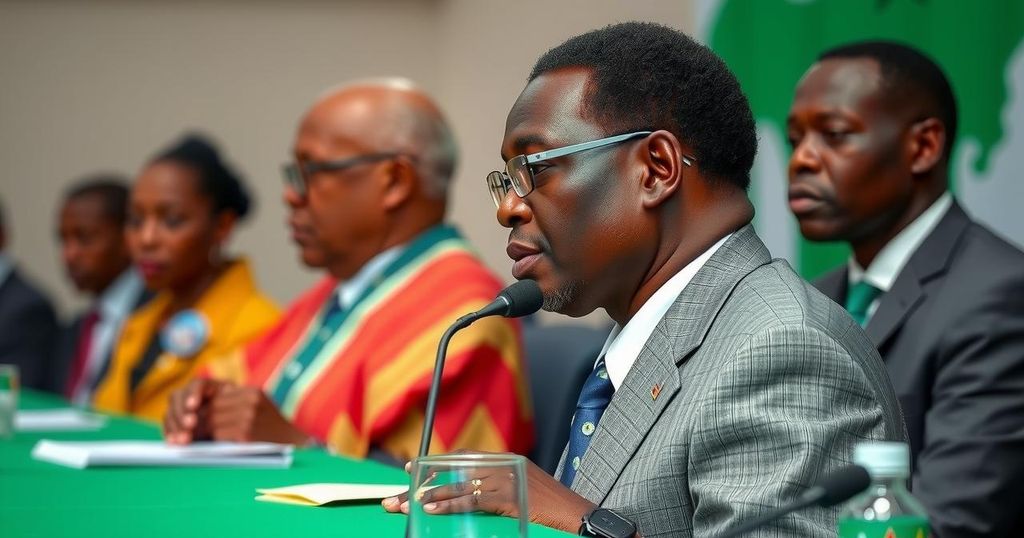South Sudan’s long-postponed general elections are now slated for December 2026, but challenges such as political stability, funding, and census preparation raise doubts about readiness. The electoral commission stresses the need for a budget and collective political will to conduct successful elections that could stabilize the country post-civil war.
South Sudan is set to conduct long-awaited general elections in December 2026, leaving many to question whether the nation will be ready. Originally scheduled for December 2023, the elections have been postponed, primarily due to the need for a comprehensive census, the development of a permanent constitution, and the registration of political parties. The extension of the transitional government, led by President Salva Kiir, has raised further concerns regarding the readiness of the electoral process.
Abendengo Akok, the chair of South Sudan’s National Electoral Commission, emphasized the importance of political commitment for the elections to succeed, citing the 2018 peace agreement that concluded the civil war. He expressed, “If we are serious, two years are enough for us to run the election,” while also highlighting that adequate funding is crucial for a successful electoral process.
Nicholas Haysom, head of the United Nations Mission in South Sudan, cautioned that poorly managed elections could potentially lead to renewed violence, jeopardizing the stability of South Sudan. He noted, “We have been insisting that properly prepared elections, which have also been preceded by proper trust-building exercises, can play a significant role in taking an exercise which can be very divisive and make it a nation-building exercise.”
Since gaining independence from Sudan in 2011, South Sudan has faced numerous challenges. The first elections initially planned for 2015 were disrupted by civil war, prompting a power struggle between President Kiir and former Vice President Riek Machar. The 2018 peace agreement promised elections, but the deadline was postponed again in June, pushing the date to 2026. Citizens like Wani Yusuf, who was just 14 when he voted for independence, now eagerly anticipate their first opportunity to vote in a democratic election. However, Yusuf remains skeptical, stating, “When you look at the period that we spend postponing the election, it still tells you that that if they cannot conduct election in that time up to now, then there is also high possibility that election might not take place within those two years’ time.”
The electoral commission has expressed the need for a budget to initiate processes such as conducting a census and establishing guidelines for the elections, which remains stalled due to financial constraints. Without such a budget and the necessary preparations, the realization of these crucial elections may remain uncertain.
The imminent elections in South Sudan, scheduled for December 2026, are a pivotal moment for the youngest nation in the world, which gained its independence from Sudan in 2011. However, the country has faced immense challenges since its inception, including a devastating civil war that ignited in 2013. The initial plans for elections in 2015 were thwarted by this conflict, which has perpetually delayed the political processes necessary for a stable democracy. With the current transitional government extended, the stakes surrounding the forthcoming elections are significant for both national unity and regional stability.
The upcoming elections in South Sudan are surrounded by uncertainty and skepticism, with key challenges such as political commitment, funding, and the required preparatory processes remaining unresolved. Both the leaders and citizens express their hopes for a successful democratic transition, but lingering doubts about the feasibility of the 2026 timeline persist. As South Sudan approaches this critical juncture, the international community continues to advocate for well-prepared elections that could foster trust and stability in the war-torn nation.
Original Source: www.voanews.com







